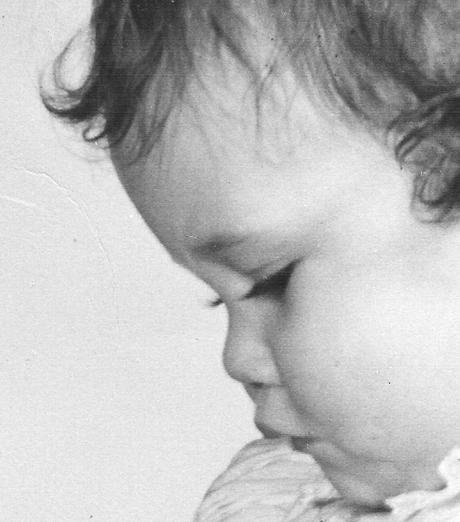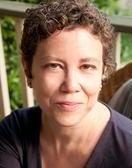 The author. Photo by Lucy Jean Brettler
The author. Photo by Lucy Jean Brettler Religions, many of them, lag and drag on issues of gender equality. We see this in the patriarchal texts and liturgies, the dearth of women in religious power, the resistance to full inclusion of LGBTQ+ people. A growing percentage of young adults no longer feel any need to affiliate, or any use for religious institutions. One reason at the top of the list is antiquated perspectives on gender and sexuality. Another interrelated reason: archaic treatment of interfaith families.
Gendered descent, the idea that religious identity is passed down, but only through the parent of a particular gender, is a corrosive, antiquated, unworkable concept in the 21st century. It is deeply troubling to me as a "patrilineal Jew," and as a human being. And it is found in multiple religions. The Orthodox and Conservative Jewish movements, and the state of Israel, go by matrilineal descent in deciding whom they consider to be Jewish. Meanwhile, many other religious cultures (from Muslims to Zoroastrians) traditionally go by patrilineal descent. Either way, interfaith families have a problem, and that means young adults who want to engage with religion, generally, are going to have a problem.
If we accept gendered descent, what is the religion of an interfaith child with two moms? Two dads? Two non-binary parents? Two trans parents? Multiple co-parenting parents? An egg or sperm donor? And, why should only one parent have the "right" to pass down a religion, based on their gender?
The painful absurdity of gendered descent is made plain, once again, in a recent decision by a rabbinical court in Israel. A Jewish mother gave birth to a baby conceived with an egg from a Jewish donor. But a state rabbinical court has now ruled that because the donor was anonymous, they can't be sure the donor was Jewish enough and they refuse to register the baby as Jewish. (Was there a convert in the lineage somewhere? Were the rabbis who oversaw that conversion kosher enough?). So the baby does not get Jewish religious identity according to the state. This has real consequences in Israel, since, for instance, religious courts control marriage (there is no civil marriage) and interfaith couples have to fly to Cyprus or elsewhere to get married.
The decision takes place in a context of increasing bullying of the more progressive Jewish movements by Israeli rabbinical courts. These courts are now suspicious of anyone with Reform Jewish identity in ruling on who can immigrate, who can marry whom, who can be buried where. The Israeli theocracy seeks to disempower and disenfranchise Reform Judaism, pushing back on this movement's adoption (in 1983) of gender-neutral policies on Jewish descent. In Israel, the religion of the father is chopped liver-irrelevant.
An egg has no religion. At birth, a baby has no religion. As adults, we create religious rituals to claim children. We create practices to immerse them in our religious culture. We create systems for their formal religious education. And then they grow up, and make their own decisions about beliefs, practices, affiliations, and identity. As the Lebanese-American poet Kahlil Gibran writes: " They come through you but not from you, And though they are with you yet they belong not to you."
And, none of this has anything to do with gender. Trying to police religious identity based on the gender of parents (and grandparents, and great-grandparents) is just one more way to exclude interfaith families, exclude LGBTQ families, and exclude those who might actually want to participate in what remains of progressive religious culture. It is past time for gender-neutral religion.
Susan Katz Miller is an interfaith families speaker, consultant, and coach, and author of Being Both: Embracing Two Religions in One Interfaith Family (2015), and a workbook, The Interfaith Family Journal (2019). Follow her on twitter @susankatzmiller.

